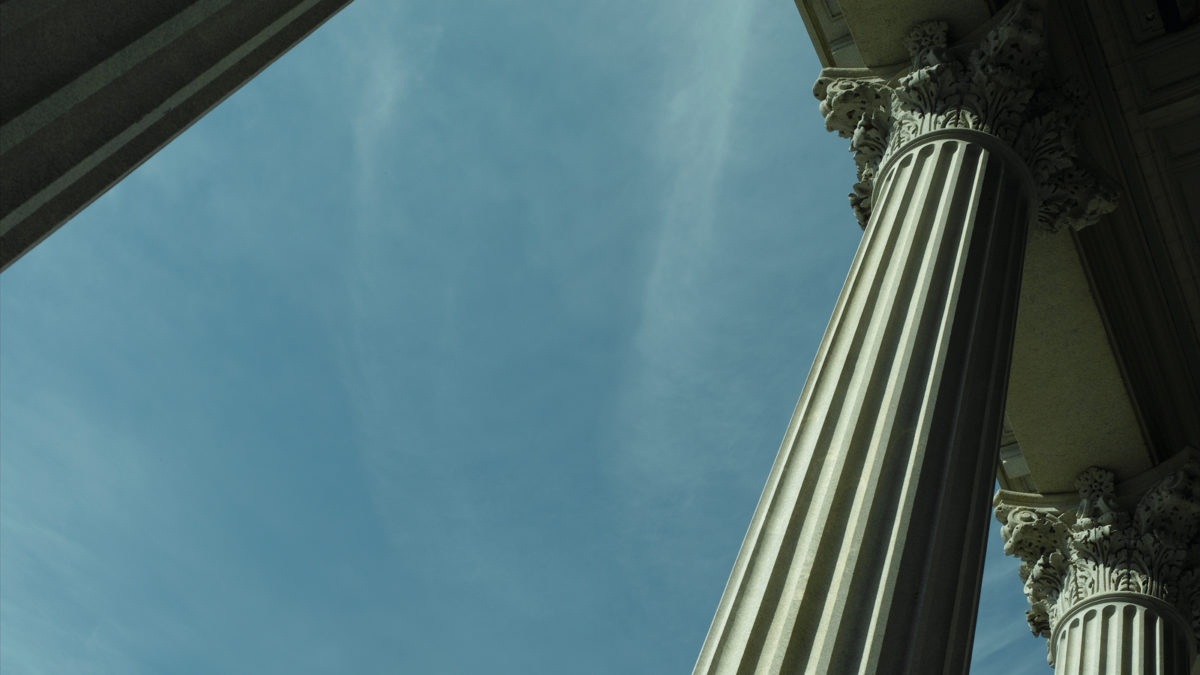
Bar Exam versus Diploma Privilege
The Pandemic Experience
January 2021
Download This Article (.pdf)
During the COVID-19 pandemic, one group has faced unique challenges: bar exam takers. After graduating from the University of Utah law school in May 2020, I sat for, and passed, the July 2020 Colorado bar exam. Conversely, most of my law school classmates were granted emergency diploma privilege by the Utah Supreme Court. While they became full-fledged lawyers without taking the bar exam, I studied without knowing whether there would be an exam to take. This begs the question: does the time, energy, and angst that new grads put into studying for the bar exam strengthen the legal profession, or is it simply a rite of passage? I don’t know the answer, but I’m sharing my experience to add to the conversation. Perhaps those who sit for the online exam in February1 will consider sharing their stories as well.
The July 2020 Bar Exam
Most practitioners would agree that studying for and taking the bar exam is a grueling experience. As a first-time bar test taker, it’s difficult to determine how my experiences may have deviated from a traditional year. Yet I do know the pandemic presented problems never before faced by law students, bar test takers, and administrators alike.2
As a 2L, I distinctly remember listening to bar application horror stories. I dreaded the process before it even began. Turns out, my fears were well founded. Digging up roughly 10 years of my life to provide a reference for each job and living situation was arduous. Trying to find my manager from a busboy job I had when I was 16 was the worst. After three calls to HR, numerous Facebook searches, and even a county assessor search, all I had was a name but no other contact information. Fortunately, the Office of Attorney Admissions was understanding. Little did I know this was just a precursor for what was to come. I did get one lucky break: because I was applying to be barred in two states, I had gathered most of my application information before COVID-19 shut everything down.
My real concerns over the bar exam being impacted by the pandemic began in March/April when New York, Massachusetts, and Connecticut postponed/canceled their July exams.3 The closer I got to graduation, the more worried I became that the Colorado exam would be impacted. Colorado saw a spike in COVID-19 cases in late April,4 and at that point I was genuinely convinced the Colorado bar exam might not take place in July. The Utah Supreme Court’s decision to grant diploma privilege in Utah only compounded my fear and anxiety. While my classmates breathed a sigh of relief, I was wracked with uncertainty. I felt isolated. My peers celebrated while I studied and stressed.
Only 23 states held in-person bar exams in July 2020, and Colorado was one of them. When I spoke with other bar exam takers, I found we were experiencing similar psychological distress. It’s hard to describe the mental gymnastics involved in trying to stay focused on bar study while knowing the bar exam might be canceled at any time, even up to the day before the exam. After Utah announced it would offer diploma privilege in lieu of taking the bar exam, the rumors that other states might follow Utah’s lead were rampant. This only added to my struggle to focus. Colorado assured test takers that the July exam would go forward as scheduled. Despite these assurances, the situation, for me, still felt precarious and uncertain.
As I struggled to stay focused on bar prep, I felt adrift by the lack of comradery. I had spent most of my time in law school studying with others, learning in groups, and talking through difficult fact patterns and legal precedents. Instead of having the resources offered by my peers, I had to learn a whole new way to study. I was forced to switch to a learning style that was completely foreign to me—isolated self-study. For students with families and young children this reality created major obstacles to bar preparation. While on its face, being stuck at home may seem beneficial for bar preparation, for me it compounded an already nerve-wracking situation.
In addition to being stuck at home, many bar takers, myself included, had genuine health concerns for our own health and the health of those around us. Those with preexisting conditions or high-risk family members had to decide whether to prioritize career over life. I suspect in previous testing cycles, examinees did not feel like they were taking their lives into their own hands when they decided to take the bar exam.
In addition to health concerns, I became increasingly concerned about the test-day procedures. Test takers learned we would be required to wear masks during the test and increased safety measures would be put in place. These increased safety measures included temperature checks before entering the test facility and health questionnaires that had to be “passed” to sit for the exam. These measures, while meant to protect test takers, added another layer of uncertainty to testing day. I wasn’t sick and didn’t think I posed any risk to others, but I worried that I could be turned away on the day of the exam. I had intrusive thoughts about being stuck outside in the sun and not passing the temperature check. I daydreamed about ways I could assure my entrance to the exam by taking Advil, keeping an ice pack in my car, and running the AC over my face before I got in line.
The Sunday before the exam, I checked into my hotel in Denver and the staff asked if I was there to take the bar exam. Then they gave me a small gift bag with a note wishing me luck, a granola bar, and a bottle of water. Cool. It felt surprisingly nice to know a complete stranger was cheering me on!
The natural fear and anxiety I had felt the night before the exam intensified when I arrived at the exam site. As I stood in line with hundreds of others who had been through my same experience, the tension in the air was palpable. A woman behind me in line, who had previously taken and passed the Florida bar exam, commented: “This experience must be terrifying for first-time test takers.” I was not reassured. My only saving grace was that I didn’t know any different.
Beyond the slight delay in entering the building, thankfully there were no major interruptions once the test began. I did not see anyone turned away due to a temperature check failure. There was adequate space between the tables, and the proctors made sure examinees were spaced out during lunch breaks each day. I saw no egregious missteps by test administrators during the two-day exam.
Diploma Privilege
Utah was the first state to offer a diploma privilege option following the global pandemic.5 The state has two law schools, the University of Utah S.J. Quinney College of Law (U of U), and Brigham Young University–J. Reuben Clark Law School (BYU). My last semester at U of U became a virtual experience around mid-March 2020. This shift to online learning was a new experience for faculty, administration, and students alike, and it was fraught with challenges. Fortunately, I was also enrolled in a bar prep course that met twice weekly—virtually—through the end of the semester. The other students and I were able to ask questions about the upcoming bar exam and what effect, if any, the pandemic might have on the process. We all concluded the bar exam would either be (1) canceled/postponed, or (2) proceed as scheduled.
Yet on April 9, 2020, roughly 16 weeks before the bar exam was set to take place, the Utah Supreme Court issued a proposed order granting what was dubbed “diploma privilege plus.” Under the proposed order, new law graduates would not have to take the bar exam to become a licensed attorney if three conditions were met:
- The applicant had graduated from an ABA-accredited school with a first-time bar passage rate of 86% or higher.
- The applicant had applied to sit for the exam in Utah.
- The applicant had completed 360 supervised practice hours.
The Utah legal community expressed varying degrees of support for and criticism of the proposed order. Law students were encouraged to express their opinions about the proposed order and how it might affect them. Some students expressed concerns over job security if the bar exam were to be postponed. Others raised concerns about the health risks of attending a large gathering like the bar exam. There was also a contingent of law students who expressed concern over difficulties studying for the bar (something I experienced firsthand). Ultimately the proposed order was passed with slight modifications, and my fate was sealed: I could not take advantage of the diploma privilege in Utah. Although I had applied for admission to both the Utah and Colorado bars, I had only applied to sit for the exam in Colorado. Still, I was very excited for my fellow graduates.
The diploma privilege option was made possible in Utah because of early intervention and planning by the state’s two law schools. U of U and BYU came together and presented a united front to the Utah Supreme Court. Key members of both schools met with the Court on multiple occasions (virtually of course) and presented the necessary information, including statistics regarding the bar exam, previous bar passage rates, and information on the pandemic, to help the Court make its decision. The schools advocated valiantly for their law students, but ultimately it was the Utah Supreme Court’s swift and forward-thinking decision that put the diploma privilege before bar members and the public in early April 2020.
Most other states began pushing for alternatives to the bar exam (including diploma privilege) in May and June. But these efforts were hampered due to division between law schools and indecision about what the best course should be. Utah’s highest court showed amazing resolve; the justices got ahead of the pandemic and did not get sidetracked by the shifting nature of the pandemic.
Takeaways
Reflecting on my bar exam experience has been cathartic. First, the period between April and October not only stretched my patience and cognitive ability, but also impacted my mental health. While the bar is supposed to be “a test of minimal competency,” there was nothing minimal about it for me. I am happy for those who passed the bar, but I do not begrudge those who are now barred through diploma privilege. We have each gone through unprecedented experiences since graduation (that wasn’t really a graduation at all). I genuinely feel a kinship with each member of the class of 2020, from every law school. We have endured a common experience (becoming a member of the bar), through uncommon routes.
Second, despite the shared pandemic experience, each law grad’s situation is unique. There is no perfect way to enter the legal profession. The bar exam is viewed as a gatekeeping mechanism; however, most reasonable attorneys would admit the bar exam is an imperfect tool in predicting competence to practice law. Across the country, the legal community was given a golden opportunity to rethink the bar exam and its effectiveness. This opportunity will be wasted if we do not continue the conversation about what it means to be a competent attorney and how that will be effectively measured.
Finally, I hope we can applaud each other’s successes. This year has been a roller coaster with hardship for all. The bar exam and the diploma privilege should not be pitted against each other. We are entering the profession to serve, and the route we took getting here will be eclipsed by the important work we will do going forward.
Notes
1. Colorado Courts, Colorado Supreme Court announces February 2021 bar exam to be administered remotely (Nov. 6, 2020), http://www.coloradosupremecourt.us/PDF/BLE/February%202021%20Remote%20Bar%20Exam%20Announcement.PDF.
2. This discussion revolves around my unique experience. I don’t presume to know what it was like for others (including the office of attorney admissions, the NCBE, or other test takers).
3. Ward, “Three states postpone July bar exam; will others follow?,” ABA J. (Mar. 30, 2020), https://www.abajournal.com/news/article/new-york-postpones-july-bar-exam-will-other-states-follow-connecticut-massachusetts..
4. Google, “Colorado Coronavirus cases,” https://bit.ly/3lEyiqv.
5. Both Wisconsin law schools—the University of Wisconsin and Marquette University—offered diploma privilege to their students well before the pandemic hit. See Settlement retains diploma privilege, State Bar of Wisconsin (Mar. 25, 2010), https://www.wisbar.org/NewsPublications/InsideTrack/Pages/Article.aspx?Volume=0&Issue=0&ArticleID=5824#:~:text=March%2025%2C%202010%20%E2%80%93%20Graduates%20of,Attorney%20Christopher%20Wiesmueller%20of%20Waukesha.
Across the country, the legal community was given a golden opportunity to rethink the bar exam and its effectiveness. This opportunity will be wasted if we do not continue the conversation about what it means to be a competent attorney and how that will be effectively measured.


